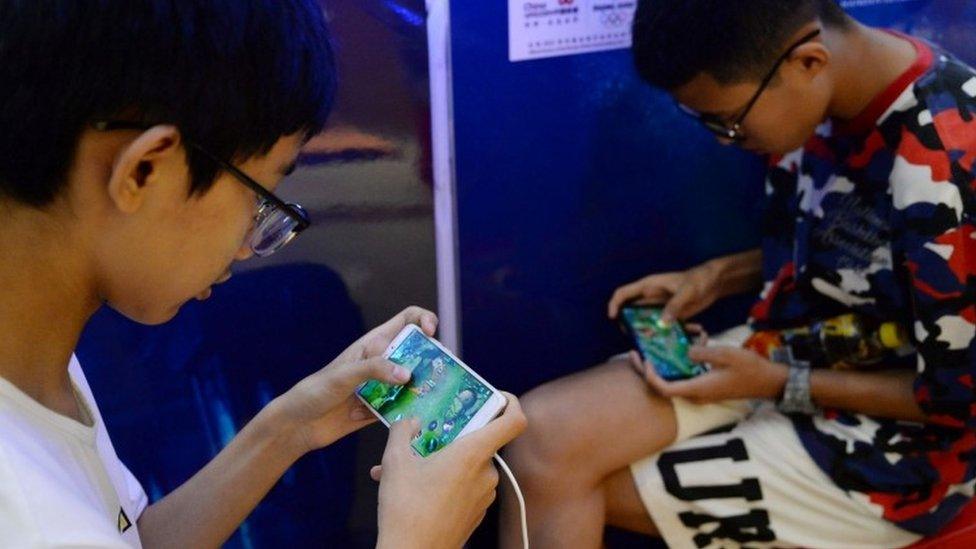State data to be used to limit child gamers in China
- Published

Honour of Kings is popular with children and is China's top grossing mobile game
Chinese technology giant Tencent is introducing tough new rules to identify under-age gamers, amid a crackdown on gaming addiction in the country.
From mid-September it will introduce a real-name registration system for its Honour of Kings games, which will be linked to China's public security database.
It will identify children and restrict the time they spend on the game.
The move is the first of its kind in the world's largest gaming market.
Tencent, which also operates the Chinese social network WeChat, posted its first profit decline since 2005 this summer, blaming the drop on tighter regulation, specifically around the approval of licences that allow companies to make money from new mobile games.
Honour of Kings is a hugely popular multi-player role-playing battle game based on Chinese historical figures.
It is specifically designed to play on a mobile platform, which has added to its popularity because many young gamers do not have access to a games console or PC at home.
The app is free to download but players have to pay to upgrade their characters and costumes in order to advance to the next level.
The game was criticised last year for its addictive nature in government-owned newspaper People's Daily, which called it "poison" and a "drug".
Tencent is one of China's biggest internet companies
Following the criticism, Tencent took the decision to restrict the time children could play it - with children under 12 limited to one hour a day and those between 13 and 18 to two hours.
The new system will help it more accurately identify young players and "better guide under-aged players to game sensibly", the company said in a statement on its official WeChat account.
Chinese President Xi Jinping has spoken about the need to address the problem of gaming addiction, in particular voicing concerns about how it may be affecting children's eyesight.
Myopia was becoming more common among younger children, the Xinhua News Agency reported him as saying in August.
Following his comments, China's Ministry of Education announced that it would curb the number of new online games available to children and take new measures to limit their time on games.
Earlier this month, another Tencent game, Monster Hunter World, was banned in China, just days after going on sale.
It was not clear what was behind the ban although the Chinese government has blocked dozens of games in the past, typically for featuring excessive violence, drug-taking or sex.
- Published14 August 2018
- Published7 July 2017